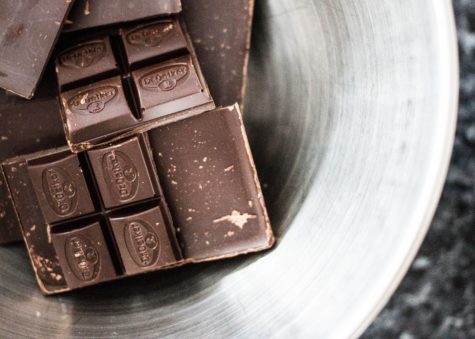PROVO, Utah — A key to fending off diabetes may be found in your favorite chocolate bar, a new study finds, but that doesn’t mean you should go running to the candy store to stock up.
Chocolate seems like an unlikely ally in the fight against diabetes, yet researchers at Brigham Young University found that some compounds in chocolate may actually help the body release more insulin and respond to blood sugar better.

Diabetes is characterized by a lack of natural-forming insulin in the body and/or an improper response to sugar in the bloodstream. When the body doesn’t process sugar the way it’s supposed to, diabetes is the result. Beta cells in the body produce insulin to help process sugar. When these cells don’t produce enough or malfunction, problems arise. But the researchers found that when higher amounts of epicatechin monomers — compounds found most commonly in cocoa — are present, these beta cells work better.
Of course, you might not like the taste of the cocoa as much as you would a chocolate bar.
“You probably have to eat a lot of cocoa, and you probably don’t want it to have a lot of sugar in it,” warns study co-author Jeffery Tessem in a university release. “It’s the compound in cocoa you’re after.”
The researchers performed their experiment on animals, feeding them high-fat diets rich in epicatechin monomers. When they examined the tiny processes occurring between cells, they found that the cocoa compounds were helping betas secrete more insulin in a more timely manner.
“What happens is it’s protecting the cells, it’s increasing their ability to deal with oxidative stress,” says Tessem. “The epicatechin monomers are making the mitochondria in the beta cells stronger, which produces more ATP (a cell’s energy source), which then results in more insulin being released.”
The research team hopes this research leads to better understanding of how diabetes works and how to combat it. In the future, the compound could be added to foods or supplements as a means to delay or block the development of type-2 diabetes.
The full study was published in the Nov. 2017 edition of the Journal of Nutritional Biochemistry.

I’ve got Type II. Here is what I do: hot coffee, cocoa powder (not cocoa mix with sugar), half-n-half or heavy cream; whisk the heck out of it until it is smooth and drink. I started doing this a year ago to get my chocolate fix; I had no idea that such a study was underway. By the way, the more expensive cocoa powders work best, but plain old Hershey’s will do.
I think they meant cacao,not cocoa. This is already a well known fact among people with type two, for decades. Unfortunately things are not recognized unless they go through government testing which take decades to approve.
Why is so-called diversity and mass immigration mandated for ALL white populations and ONLY white populations?
Is open borders the White ‘Privilege’?
Diversity is not demanded anywhere EXCEPT where white people are.
It’s code for removing white people ONLY. It’s Geno cide
Its Anti White
Chocolate is anti white?
Are you insane?
You’re crazy. My addiction to chocolate gave me diabetes.
Your addiction was more likely to chocolate flavored sugar.
And bread, doughnuts, pizza, candy bars, etc.
I always heard that cinnamon was good for you if you were a diabetic. I’m glad that cocoa is also good for you. It make life seem worth living.
Cool, I just made a batch of chocolate fudge using only butter, Ghiradelli unsweetened chocolate, cream cheese, vanilla and Swerve. Low carb and lots of chocolate. Also for coffee I use the sugar free D’Vita, nice coffee cocoa flavor.
Break out the Wonka bars!